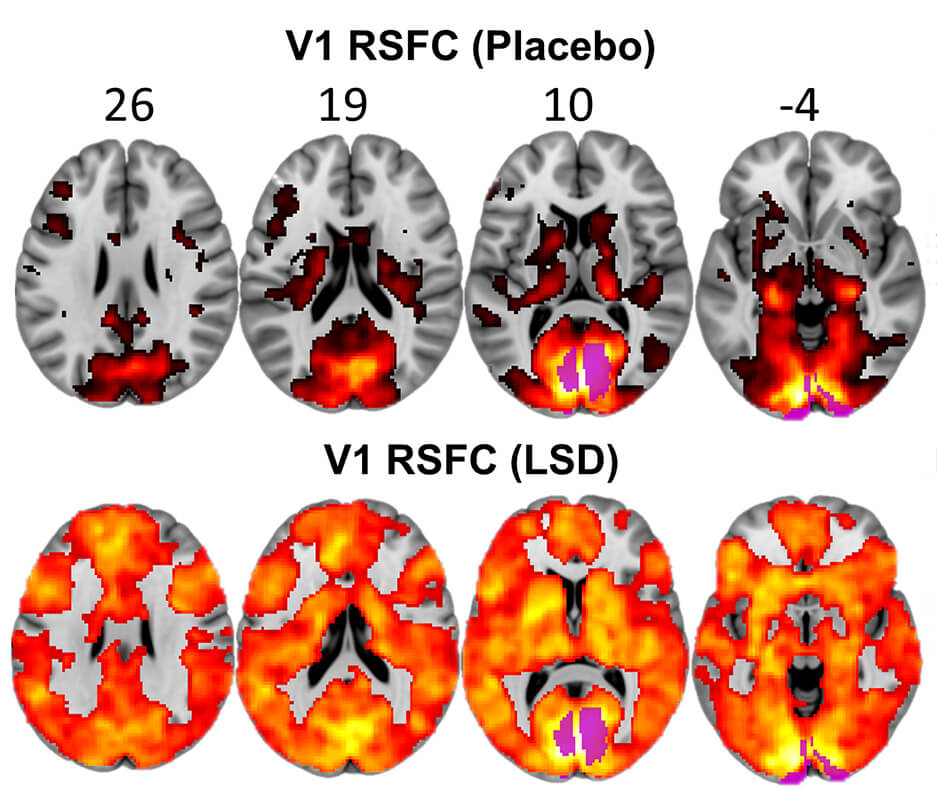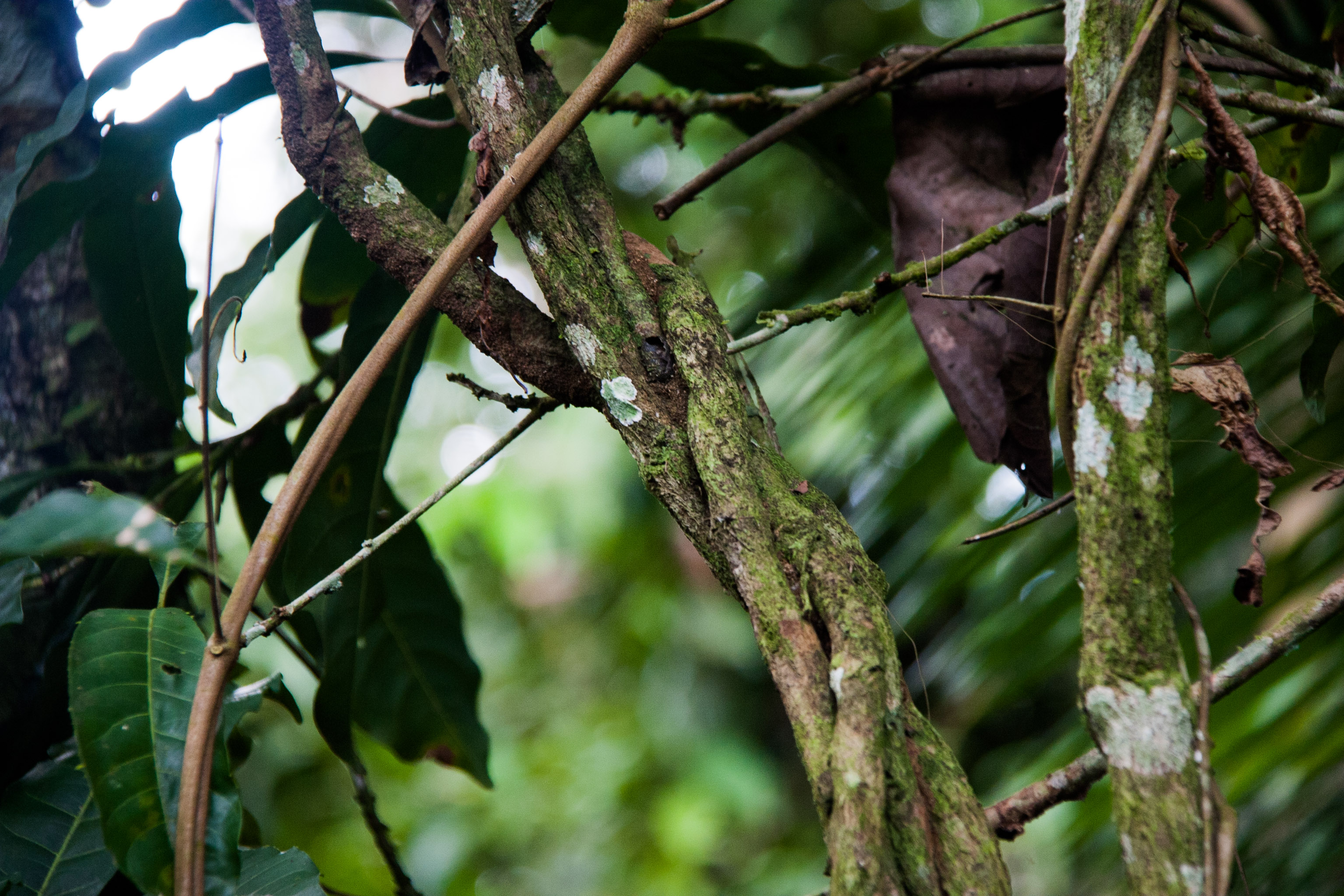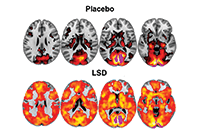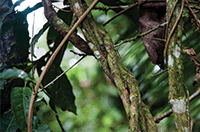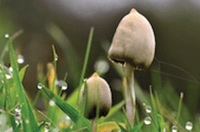
The Beckley Foundation Science Highlights of 2016
The collection of studies published this year by the Beckley Foundation and our collaborators is indicative of a significant step forward for psychedelic research. Since the origins of the psychedelic renaissance in the 1990s, the Beckley Foundation has advanced the field of psychedelic science by initiating, supporting, and directing research into psychoactive substances. These drugs, despite being understudied and stigmatised, hold great promise for improving our understanding of consciousness and its neural correlates, and providing novel treatment options for neurological and psychiatric disorders.
In one of our most fascinating and important findings this year, we showed that a decrease in the connectivity of the default-mode network under LSD is associated with the experience of ‘ego-dissolution’ and ‘altered meaning’. These phenomena under psychedelics may be, at least in part, responsible for their therapeutic effect by producing a more flexible mode of thought and perception of one’s self and its relation to the world. Such a radically novel perspective could be invaluable for those struggling with rigid, destructive patterns of thought and behaviour, by which conditions such as addiction and depression are characterized. Our preliminary results provide an important foundation for future studies that will more precisely determine the neural correlates of ego-dissolution and the extent to which this aspect of the psychedelic experience results in the improvement of symptoms.
Our research has also shown that it is not just the subjective change in consciousness brought about by psychedelics that can be incredibly useful for therapy. We have also found that there are a variety of compounds contained in ayahuasca, called β-carbolines, that can strongly promote the proliferation, migration, and differentiation of stem cells in the brain into new adult neurons. Analogous to how an overactive default-mode network is a principal mechanism underlying many psychiatric illnesses, the death of brain cells is central to the pathogenesis of neurodegenerative diseases such as Alzheimer’s and Parkinson’s disease, and of serious brain injuries for which current rehabilitation methods have only modest efficacy. Our research therefore provides another springboard for the development of new, cutting-edge treatment modalities for difficult-to-treat neurological disorders.
We are involved in over thirty ground-breaking scientific endeavours and have an exciting schedule for 2017. New collaborations include the first modern study to investigate the efficacy of LSD in the treatment of alcohol addiction, and an investigation into the potential of psilocybin to enhance divergent thinking – which may enable people suffering from post-traumatic stress disorder to reframe their traumatic memories. The Beckley Foundation is not only committed to furthering our understanding of the nature and extent of psychedelics’ therapeutic potential, but also to bringing them closer to the patients who need them most.
Words: Lisa Evans
Podcast
- All
Links
- All
Support
- All
BIPRP
- All
Science Talk
- All
Amanda's Talks
- All
- Video Talk
- Featured
- 2016 Onwards
- 2011-2015
- 2010 and Earlier
- Science Talk
- Policy Talk
One-pager
- All
Music
- All
Amanda Feilding
- All
Events
- All
Highlights
- All
Psilocybin for Depression
- All
Current
- All
Category
- All
- Science
- Policy
- Culture
Substance/Method
- All
- Opiates
- Novel Psychoactive Substances
- Meditation
- Trepanation
- LSD
- Psilocybin
- Cannabis/cannabinoids
- Ayahuasca/DMT
- Coca/Cocaine
- MDMA
Collaboration
- All
- Beckley/Brazil Research Programme
- Beckley/Maastricht Research Programme
- Exeter University
- ICEERS
- Beckley/Sant Pau Research Programme
- University College London
- New York University
- Cardiff University
- Madrid Computense University
- Ethnobotanicals Research Programme
- Freiburg University
- Medical Office for Psychiatry and Psychotherapy, Solothurn
- Beckley/Sechenov Institute Research programme
- Hannover Medical School
- Beckley/Imperial Research Programme
- King's College London
- Johns Hopkins University
Clinical Application
- All
- Depression
- Addictions
- Anxiety
- Psychosis
- PTSD
- Cancer
- Cluster Headaches
Policy Focus
- All
- Policy Reports
- Advisory Work
- Seminar Series
- Advocacy/Campaigns
Type of publication
- All
- Original research
- Report
- Review
- Opinion/Correspondence
- Book
- Book chapter
- Conference abstract
- Petition/campaign
Search type

